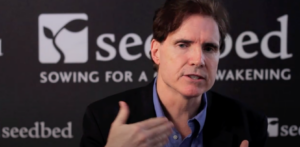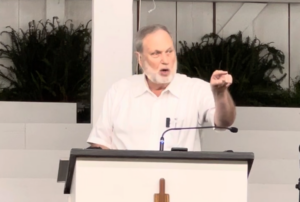If you were in the house at Mosaic or watched worship online this week, you have heard much of what follows (this was also sent to those on our mailing list). Still, I want to share it here for so many friends of Mosaic who support us through prayer and encouragement all year long.
Jesus understood the deep and rich connection between our stuff and our souls. He got it that giving is not a financial issue but a spiritual issue. We know this, because the Bible is full of this kind of talk. It contains more than 700 references to our use of money. Two-thirds of Jesus’ parables talk about materialism and money. Jesus talked more about money than he did heaven and hell and prayer combined. I’d say that Jesus thinks how you use your money matters.
That’s why I love talking about money in church. I get the connection between our faith and our stuff, and I know it can be a real barrier for some of us in growing toward Jesus. So I love talking about it as a discipleship issue and as a spiritual discipline; and I have a genuine desire to see Jesus holy-fy every nook and cranny of your life.
With that in mind, let me begin by giving you just a little on where Mosaic ended that strange year we called 2020:
- Through our outreach projects (think “The Mosaic Center”), we served nearly 600 more people than we served in 2019, and over fifteen hundred more than we served in 2018. In fact, we served a record number of people in mission last year.
- Our worship attendance, between in-house and online worship, was up by about 35%. Which means that through The Mosaic Center and online worship we are reaching more people today than at any point in our 18-year history. Take that, pandemic!
- In 2020, we received just 4% less in offerings than in the year prior. Though we had fewer givers and fewer in-person gatherings, we were able to cover all the costs of serving all our mission projects and every person who showed up with a need. I count that as a fish-and-loaves miracle.
I tell you all this to emphasize a point: I am convinced that tithing to a missional organization and then serving that organization is the most strategic thing you can do to change the world. I believe this with my whole being: As a faithful giver and also as a concerned voter, I believe my vote is not the most powerful tool at my disposal. My active connection to my local missional community is my most powerful tool against the darkness in this world. Because remember: the mission of Jesus begins in relationship. Giving is not first of all about mission or efficiency or even evangelism. Giving is rooted in relationship — being with, not doing for. This is the gist of Acts 4:32, which I believe best sums up how a life steeped in grace is lived out:
All the believers were one in heart and mind. No one claimed that any of their possessions was their own, but they shared everything they had” (Acts 4:32, NIV).
This is the attitude of people who have been transformed through the power of the Holy Spirit. We become the New Covenant temple (or as Tim Mackie puts it, “The temple becomes us.”). We see ourselves and our stuff not as ours at all but as part of a whole. Our character becomes that of a confident giver, because we have received the spirit of God who is at his core a Giver. God is a giver who gives to us, and when his Spirit fills us his character becomes our character. And that self-giving connects us back to God.
This Acts 4:32 life is so in rhythm with God’s ways, so in sync with his purposes, that the journey is no longer a fight against a self-protective spirit but a knee-bowing, Spirit-bearing, hungry cry for boldness to speak the Word and become an extension of God’s healing, sign-producing, wonder-inspiring hand.
N.T. Wright puts it this way: “What you do with your money and possessions declares loudly what sort of a community you are, and the early church’s practice was clear and definite.” Their practice was Acts 4:32.
And it really does work! Ron Sider has done the math and he says, “If American Christians simply gave a tithe rather than the current one-quarter of a tithe (which is our average), there would be enough private Christian dollars to provide basic health care and education to all the poor of the earth. And we would still have an extra $60-70 billion left over for evangelism around the world.”
In the words of Acts 4:32, we discover the audacious claim of generosity: Out of giving comes great power.
Friends, grace is power. When it comes to giving, more information won’t give you more power. More time, more resources, more control, more … you name it … none of it will give you more power. When it comes to giving, grace is power.
This is exactly how it worked with the apostles.
“With great power the apostles continued to testify to the resurrection of the Lord Jesus. And God’s grace was so powerfully at work in them all that there were no needy persons among them. For from time to time those who owned land or houses sold them, brought the money from the sales and put it at the apostles’ feet, and it was distributed to anyone who had need” (Acts 4:33-35).
Out of giving comes great power.
There is such a deep and rich connection between our stuff and our souls. That’s why money really is a significant discipleship issue. It is because Jesus has a deep desire to holy-fy every nook and cranny of your life, especially the parts you’d rather protect. And that is because Jesus wants your heart … all of it.








